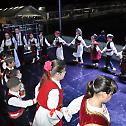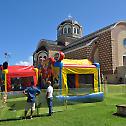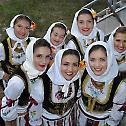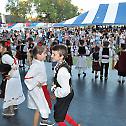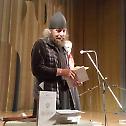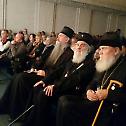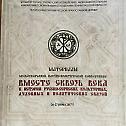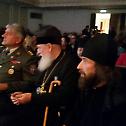Culture
SebFest in Orlando
24. October 2017 - 9:09This past weekend, St. Petka Orthodox church in Orlando hosted the 12th annual SerbFest. This, now traditional, festival brought over 5,000 people to our church grounds. All of the proceeds made will go toward the construction of our new church. The church parishioners volunteered their time by cooking, baking, selling, cleaning, setting up, etc. all in hopes of raising money to profit the church. Their work helped create three unforgettable days.
Life and Miracles of St. John (Maximovich) of Shanghai and San Francisco—One of the Greatest Saints of the 20th Century
13. October 2017 - 11:47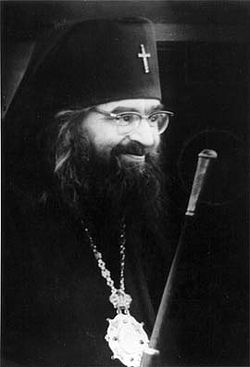 "Sanctity is not just a virtue. It is an attainment of such spiritual heights, that the abundance of God's grace which fills the saint overflows on all who associate with him. Great is the saint's state of bliss in which they dwell contemplating the Glory of God. Being filled with love for God and man, they are responsive to man's needs, interceding before God and helping those who turn to them."
"Sanctity is not just a virtue. It is an attainment of such spiritual heights, that the abundance of God's grace which fills the saint overflows on all who associate with him. Great is the saint's state of bliss in which they dwell contemplating the Glory of God. Being filled with love for God and man, they are responsive to man's needs, interceding before God and helping those who turn to them."
Thus describing the ancient Saints, Vladyka John simultaneously summarized his own spiritual attitude which made him one of the greatest Saints of our time.
Childhood
Michael Maximovitch, the future Archbishop John, was born on June 4, 1896, in the village of Adamovka in the province of Kharkov in southern Russia. He was a member of the Little Russian noble family of Maximovitch, to which St. John of Tobolsk also had belonged. He received at baptism the name of Michael, his heavenly protector being the Archangel Michael. He was a sickly child and ate little.
Together through centuries
6. October 2017 - 15:36Collection “Together through Centuries”: contributions to history of the Russian-Serbian cultural, spiritual and political connections.
Contributor and editor is monk Benyamin (Semenov) from the monastery of All Saints in Kingisepp.
The collection “Together through Centuries” is a work in Russian and Serbian scholars, and it was presented on 4 October 2017 at the Russian Cultural Centre in Belgrade. The event dedicated to of cultural and spiritual ties of Russia and Serbia was opened by His Holiness Irinej, Serbian Patriarch, who thanked for all the efforts that this Collection had been prepared and published, and reminded of the unbreakable ties of two brotherly peoples, of the same faith and the same blood.
The Spiritual Exaltation of the Cross
28. September 2017 - 9:27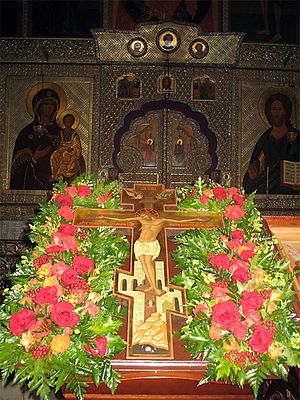 From: Letters on the Spiritual Life
From: Letters on the Spiritual Life
The Exaltation of the Lord’s Cross has arrived. Then the Cross was erected on a high place, so that the people could see it and render honor to it. Now, the cross is raised in the churches and monasteries. But this is all external. There is a spiritual exaltation of the cross in the heart. It happens when one firmly resolves to crucify himself, or to mortify his passions—something so essential in Christians that, according to the Apostle, they only are Christ’s who have crucified their flesh with its passions and lusts (cf. Gal. 5:24). Having raised this cross in themselves, Christians hold it exalted all their lives. Let every Christian soul ask himself if this is how it is, and let him hearken to the answer that his conscience gives him in his heart. Oh, may we not hear, “You only please your flesh in the passions; your cross is not exalted—it is thrown into the pit of the passions, and is rotting there in negligence and contempt!”
Christians and Entertainment
22. September 2017 - 13:21 In a recent sermon, I addressed the problem of Christians in our time who seem to have rather large gaps in their understanding of Christian morality -- particularly with regard to the question of entertainment. You can listen to that sermon here: When Lot Pitched His Tent Toward Sodom (Genesis 13:1-13)
In a recent sermon, I addressed the problem of Christians in our time who seem to have rather large gaps in their understanding of Christian morality -- particularly with regard to the question of entertainment. You can listen to that sermon here: When Lot Pitched His Tent Toward Sodom (Genesis 13:1-13)
There is another article on this site on the same subject, which shows what the Fathers had to say about Christians and unwholesome entertainment: A Patristic Checkmate on the Game of Thrones.
Converts and culture
27. August 2017 - 16:12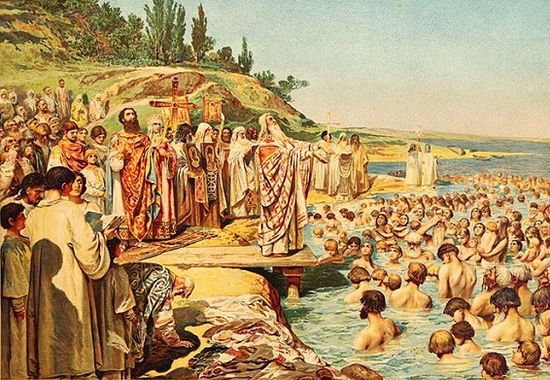 How can someone best assimilate into the “culture” of Orthodoxy, even picking up other national customs, without losing their own nationality (being from the USA for example)? How do we find that middle balance of taking the good and leaving the bad from our own culture? Fr. John Whiteford talks about the experience of a convert to Orthodoxy in the cultural context.
How can someone best assimilate into the “culture” of Orthodoxy, even picking up other national customs, without losing their own nationality (being from the USA for example)? How do we find that middle balance of taking the good and leaving the bad from our own culture? Fr. John Whiteford talks about the experience of a convert to Orthodoxy in the cultural context.

